
Halifax: The Heart of Nova Scotia
Halifax, the capital of Nova Scotia, is a vibrant city where history and modernity blend seamlessly. Known for its bustling waterfront, historic sites, and friendly locals, Halifax offers a unique coastal charm that is hard to find elsewhere. One of the city's most iconic landmarks is the Halifax Citadel National Historic Site. Standing proudly on a hill, this star-shaped fortress provides panoramic views of the city and the harbor. History buffs will enjoy exploring the museum exhibits and witnessing the daily firing of the noon gun. The Halifax Waterfront is a must-visit for any traveler. Stretching for over 4 kilometers, it features an array of shops, restaurants, and attractions. You can stroll along the boardwalk, savor fresh seafood, or take a scenic boat tour of the harbor. Don't miss the Maritime Museum of the Atlantic, where you can learn about Halifax's rich maritime heritage and see artifacts from the Titanic. Nature lovers will find plenty to enjoy in Halifax as well. Point Pleasant Park offers scenic walking trails through lush forests and along the coastline. The Public Gardens, a Victorian-era park, is perfect for a leisurely afternoon stroll among beautifully landscaped gardens and serene ponds. Halifax is also a cultural hub, with numerous festivals and events throughout the year. From the Halifax Jazz Festival to the Atlantic Film Festival, there's always something exciting happening in the city. The local food scene is diverse and thriving, with numerous eateries offering everything from fresh seafood to international cuisine.
Local tips in Halifax
- Visit during the summer months for the best weather and to experience the city's lively festivals.
- Wear comfortable shoes for exploring the hilly terrain and extensive boardwalk.
- Try the local seafood, especially the lobster and scallops, for a true taste of Halifax.
- Take a day trip to nearby Peggy's Cove to see the iconic lighthouse and picturesque fishing village.
Neighbourhoods in Halifax
Halifax: The Heart of Nova Scotia
Halifax, the capital of Nova Scotia, is a vibrant city where history and modernity blend seamlessly. Known for its bustling waterfront, historic sites, and friendly locals, Halifax offers a unique coastal charm that is hard to find elsewhere. One of the city's most iconic landmarks is the Halifax Citadel National Historic Site. Standing proudly on a hill, this star-shaped fortress provides panoramic views of the city and the harbor. History buffs will enjoy exploring the museum exhibits and witnessing the daily firing of the noon gun. The Halifax Waterfront is a must-visit for any traveler. Stretching for over 4 kilometers, it features an array of shops, restaurants, and attractions. You can stroll along the boardwalk, savor fresh seafood, or take a scenic boat tour of the harbor. Don't miss the Maritime Museum of the Atlantic, where you can learn about Halifax's rich maritime heritage and see artifacts from the Titanic. Nature lovers will find plenty to enjoy in Halifax as well. Point Pleasant Park offers scenic walking trails through lush forests and along the coastline. The Public Gardens, a Victorian-era park, is perfect for a leisurely afternoon stroll among beautifully landscaped gardens and serene ponds. Halifax is also a cultural hub, with numerous festivals and events throughout the year. From the Halifax Jazz Festival to the Atlantic Film Festival, there's always something exciting happening in the city. The local food scene is diverse and thriving, with numerous eateries offering everything from fresh seafood to international cuisine.
When is the best time to go to Halifax?
Iconic landmarks you can’t miss
Halifax Waterfront
Explore Halifax Waterfront: a vibrant blend of maritime history, culture, and modern attractions along a scenic 4.4 km Harbourwalk.
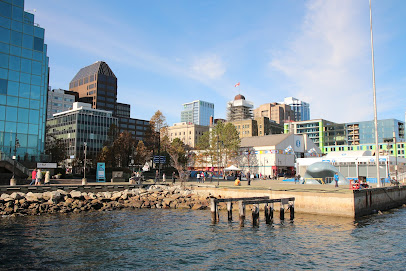
Halifax Public Gardens
Step back in time at Halifax Public Gardens, a Victorian-era oasis in the city center with stunning floral displays and tranquil pathways.
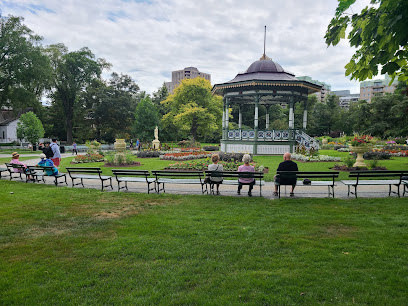
Halifax Citadel National Historic Site
Explore Halifax Citadel: A historic fortress with stunning views, live reenactments, and a glimpse into Canada's military past.
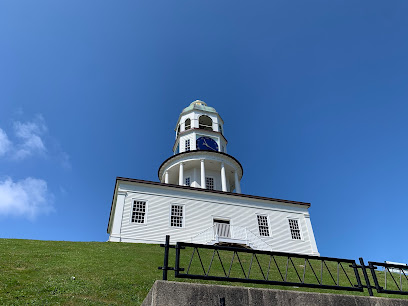
Point Pleasant Park
Explore Halifax's iconic Point Pleasant Park: History, nature, trails, and stunning sea views await at this must-visit urban oasis.
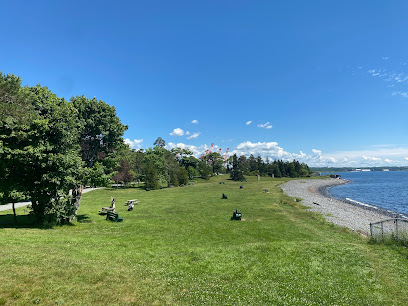
Canadian Museum of Immigration at Pier 21
Discover Canada's immigration story at Pier 21: an immersive journey through history, resilience, and the shaping of a nation. Open daily!

Museum of Natural History
Discover the natural wonders of Nova Scotia at the Museum of Natural History in Halifax, where fascinating exhibits and engaging displays await every visitor.
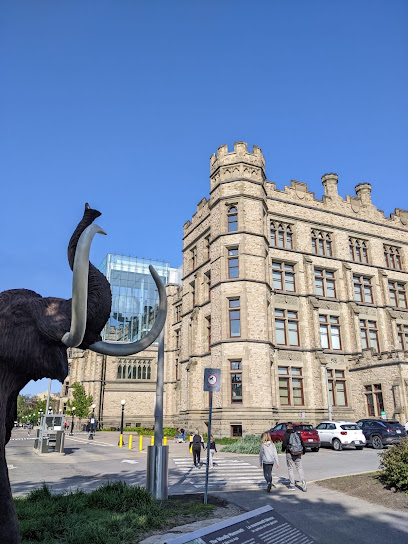
Harbour Hopper Tours
Experience Halifax by land and sea! Explore historic landmarks and splash into the harbor on a unique amphibious adventure.
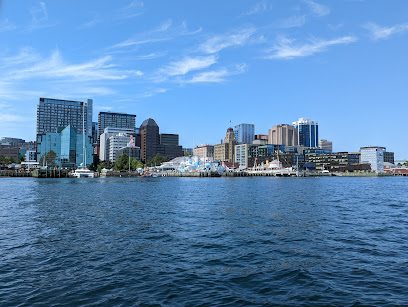
York Redoubt National Historic Site
Explore a 200-year-old fortress with panoramic views of Halifax Harbour. Discover military history and scenic beauty at York Redoubt National Historic Site.
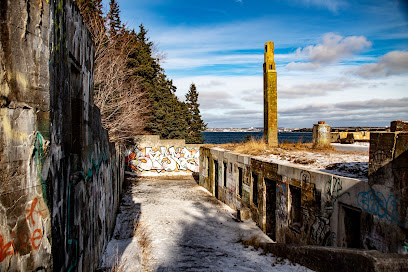
Historic Properties
Explore Halifax's Historic Properties: Where waterfront history comes alive with unique shops, dining, and East Coast charm on the boardwalk.
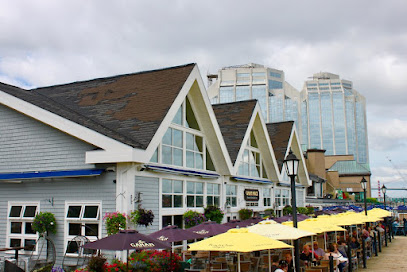
Grand Parade
Experience the historic Grand Parade in downtown Halifax, a vibrant civic square hosting events, ceremonies, and home to the iconic Cenotaph.
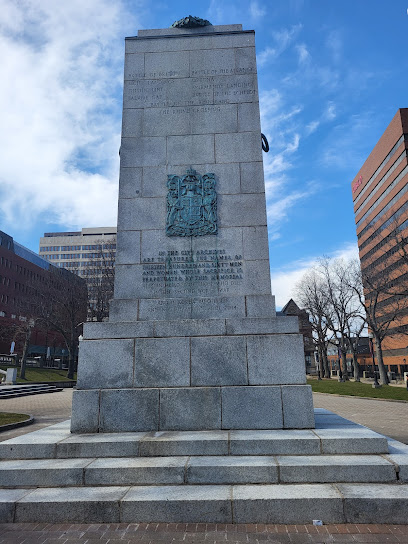
Fort Needham Memorial Park
A historic Halifax park offering panoramic views and a place for reflection on the 1917 Halifax Explosion.
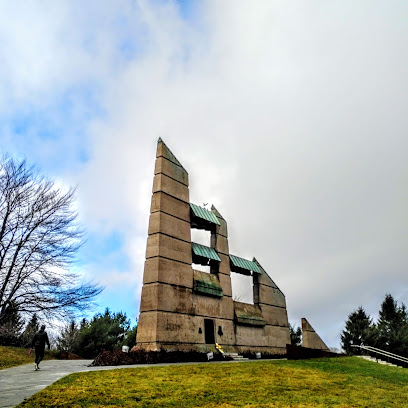
Peace and Friendship Park
Discover a tranquil oasis in Halifax's South End, honoring peace, friendship, and Mi'kmaw heritage with waterfront views and community spirit.
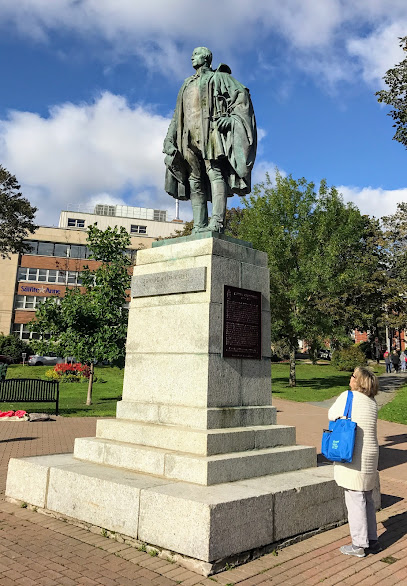
Halifax Explosion Memorial Bell Tower
A place for reflection and remembrance, the Halifax Explosion Memorial Bell Tower commemorates the tragic 1917 explosion and the resilience of Halifax.
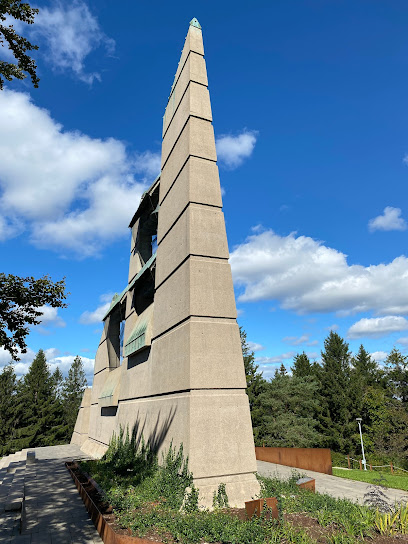
Georges Island National Historic Site
Explore the enchanting Georges Island National Historic Site, a blend of history and natural beauty in Halifax, Nova Scotia.
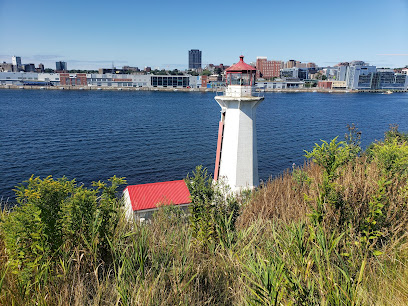
Old Town Clock
Halifax's iconic Town Clock: a historic timekeeper overlooking the city from Citadel Hill since 1803. A must-see landmark!
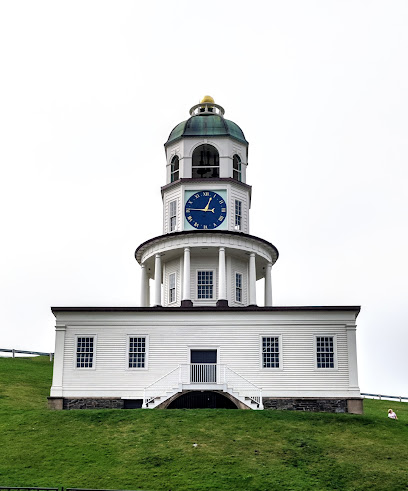
Unmissable attractions to see
Halifax Waterfront
Discover the rich history, vibrant culture, and stunning views at Halifax Waterfront, a must-visit destination in Nova Scotia.
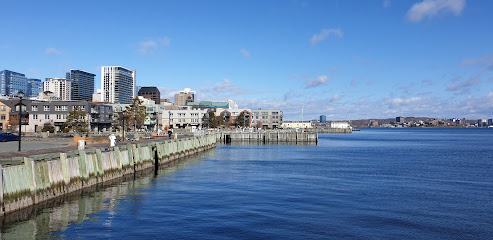
Halifax Public Gardens
Explore the serene Halifax Public Gardens, a historical gem showcasing vibrant flora and Victorian elegance in the heart of Halifax.
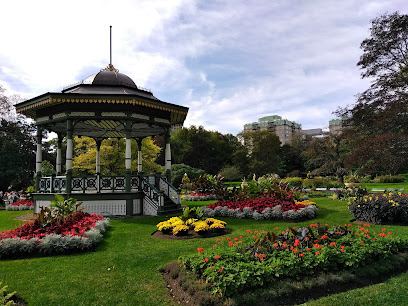
Halifax Citadel National Historic Site
Explore Halifax's rich military history at the Halifax Citadel National Historic Site, a captivating fortress with stunning views and engaging activities.
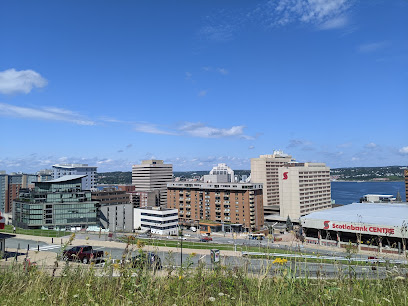
Point Pleasant Park
Experience the beauty and history of Point Pleasant Park, an urban oasis in Halifax perfect for relaxation, exploration, and breathtaking coastal views.
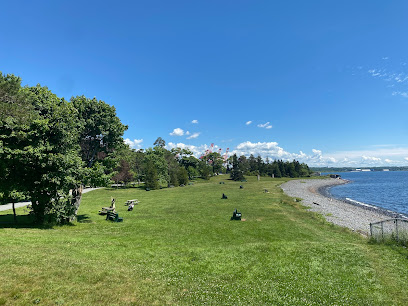
Maritime Museum of the Atlantic
Experience Nova Scotia's maritime history at the Maritime Museum of the Atlantic, showcasing exhibits from the Titanic and local shipwrecks.
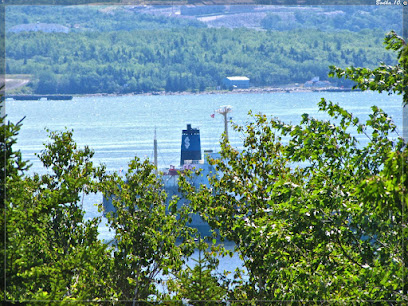
Canadian Museum of Immigration at Pier 21
Discover the rich tapestry of Canada’s immigration history at the Canadian Museum of Immigration at Pier 21 in Halifax, Nova Scotia.
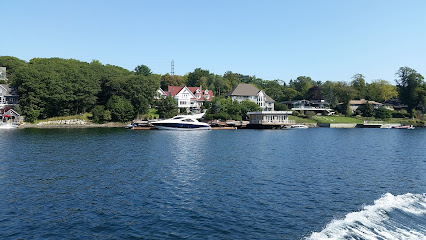
Halifax Common
Discover Halifax Common, a vibrant urban park in Halifax, NS, perfect for outdoor activities, relaxation, and seasonal fun all year round.
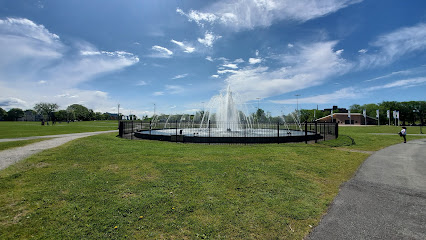
Museum of Natural History
Explore the rich biodiversity and cultural heritage of Nova Scotia at the Museum of Natural History in Halifax, a must-visit destination for all nature enthusiasts.
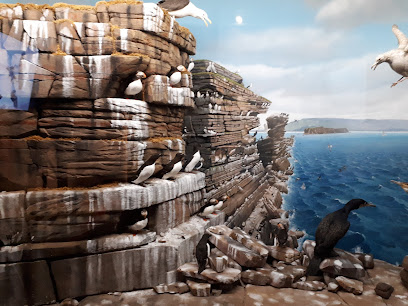
Sir Sandford Fleming Park
Experience the natural beauty and scenic views of Sir Sandford Fleming Park in Halifax, a perfect retreat for tourists and nature lovers.
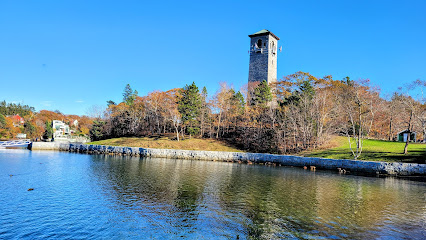
Fisherman's Cove Heritage Centre
Explore the rich maritime heritage of Nova Scotia at Fisherman's Cove Heritage Centre, a charming museum and gift shop in Eastern Passage.
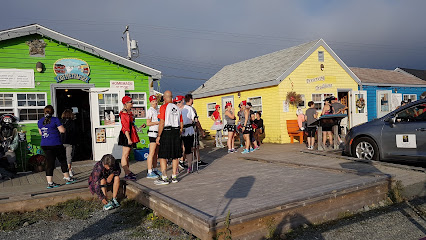
Art Gallery of Nova Scotia
Explore the Art Gallery of Nova Scotia, where vibrant local art and engaging exhibitions come together in the heart of Halifax's cultural scene.
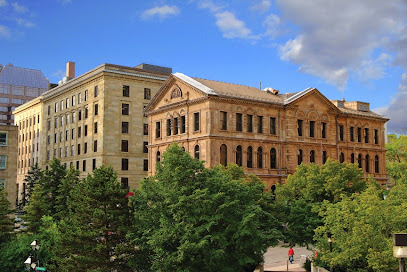
Harbour Hopper Tours
Discover Halifax like never before with Harbour Hopper Tours, blending land and water for an unforgettable sightseeing experience.
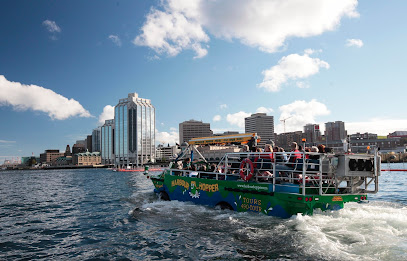
York Redoubt National Historic Site
Discover the historical significance and breathtaking views at York Redoubt National Historic Site, a hidden gem in Nova Scotia's natural landscape.
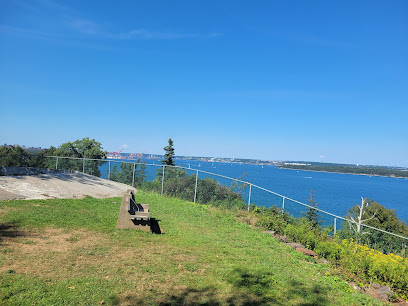
Grand Parade
Explore Grand Parade in Halifax, a vibrant historical landmark filled with culture, stunning architecture, and seasonal events in the heart of the city.
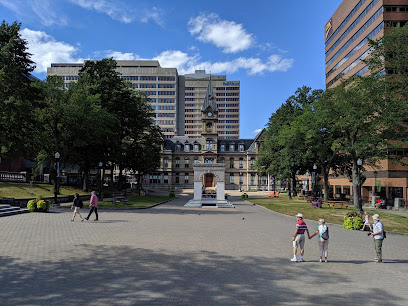
Fort Needham Memorial Park
Explore Fort Needham Memorial Park in Halifax for stunning views, historical insights, and serene outdoor experiences.
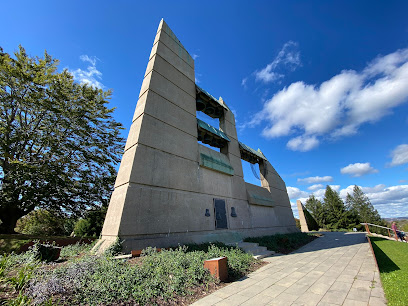
Essential places to dine
The Bicycle Thief
Experience exquisite Italian cuisine with stunning harbor views at The Bicycle Thief in Halifax – a true culinary gem on the east coast.
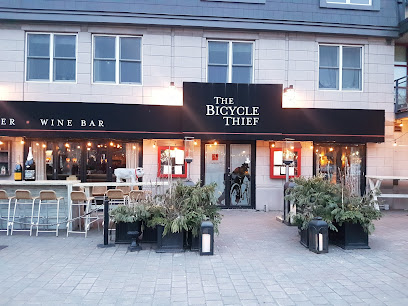
Durty Nelly's Irish Pub
Discover authentic Irish cuisine and vibrant nightlife at Durty Nelly's Irish Pub in Downtown Halifax – where every visit feels like home.
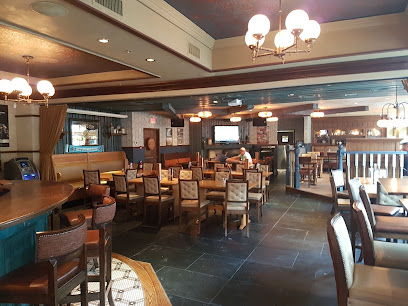
Darrell's Restaurant
Discover the iconic taste of Halifax at Darrell's Restaurant—home of unforgettable burgers and warm Maritime hospitality.
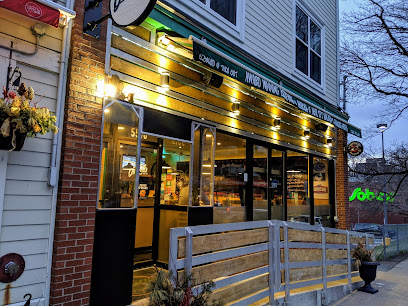
Your Father's Moustache
Experience gourmet burgers and local brews at Your Father's Moustache in Downtown Halifax – where comfort food meets vibrant pub culture.
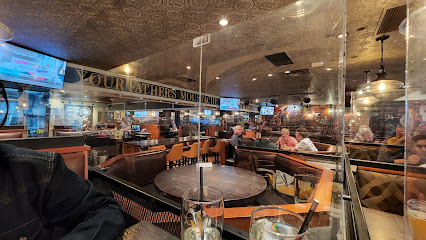
Antojo Tacos + Tequila
Experience authentic Mexican flavors at Antojo Tacos + Tequila in Downtown Halifax - where every bite is a fiesta!
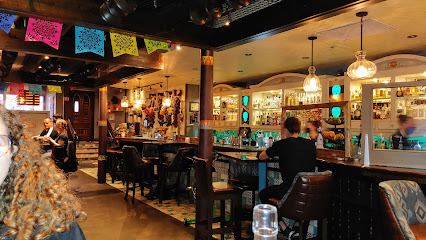
Gahan House Nova Centre
Experience the best of local craft beer and delicious fare at Gahan House Nova Centre in Downtown Halifax.
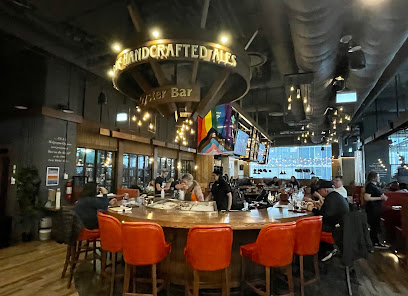
Bluenose II Restaurant
Experience authentic Nova Scotia seafood at Bluenose II Restaurant in Downtown Halifax - where fresh flavors meet maritime charm.
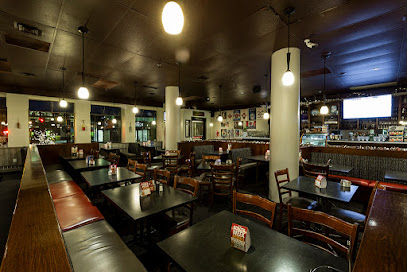
The Stubborn Goat Gastropub
Experience the best of Halifax's culinary scene at The Stubborn Goat Gastropub - where local flavors meet innovative dining.
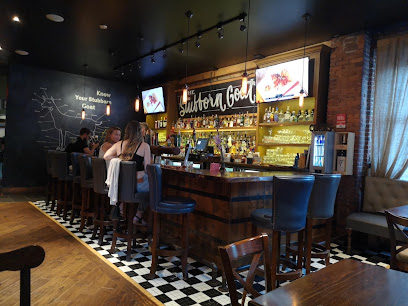
The Five Fishermen
Experience the finest seafood dining at The Five Fishermen in Downtown Halifax – where every dish tells a story of Nova Scotia's rich maritime heritage.
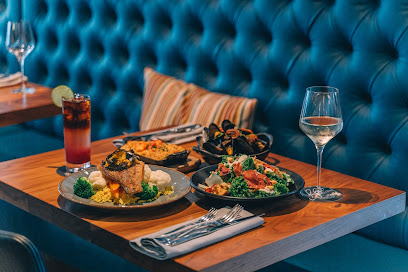
Ristorante a Mano
Experience authentic Italian cuisine at Ristorante a Mano in downtown Halifax – where every dish tells a story of tradition and flavor.
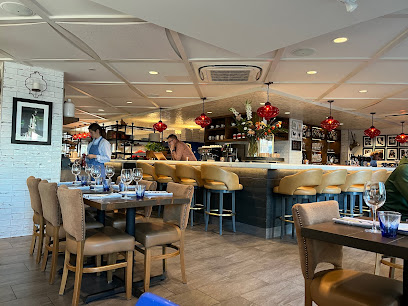
Salty's
Experience Halifax’s premier seafood restaurant with breathtaking waterfront views and an authentic taste of Nova Scotia.
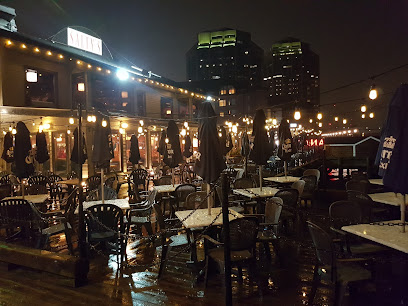
Sea Smoke Restaurant & Bar
Experience culinary excellence at Sea Smoke Restaurant & Bar in Halifax—where Asian flavors meet local freshness for an unforgettable dining experience.
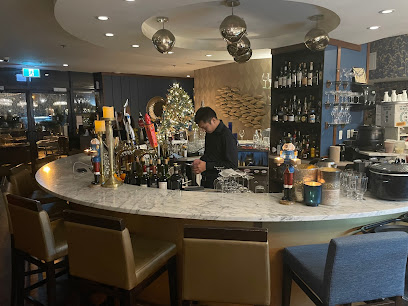
Henry House
Experience the charm of Henry House in Halifax - where local flavors meet historic ambiance in every bite.
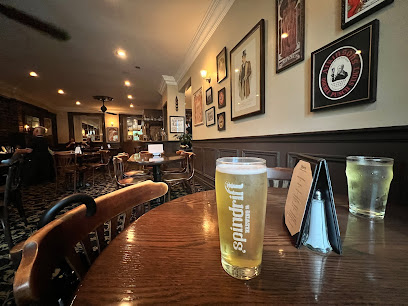
Armview Restaurant & Lounge
Experience the heart of Halifax dining at Armview Restaurant & Lounge—where comfort food meets modern flavors in a vibrant atmosphere.
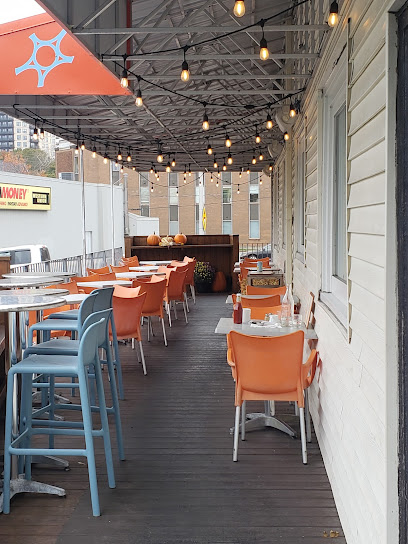
Black Sheep Restaurant
Experience Halifax's culinary gem at Black Sheep Restaurant - where local flavors meet modern cuisine in an inviting atmosphere.
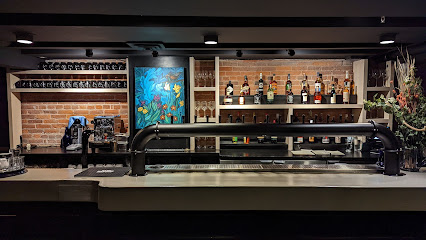
Markets, malls and hidden boutiques
Halifax Shopping Centre
Explore over 160 stores at Halifax Shopping Centre, a premier shopping destination in Nova Scotia with dining and entertainment options.
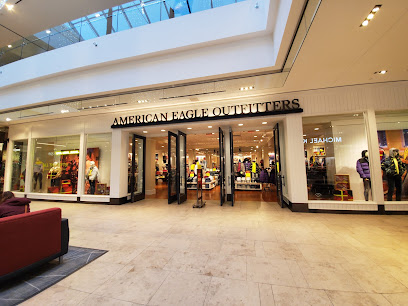
Value Village
Discover unique treasures and sustainable shopping at Value Village Halifax, your go-to second-hand store for vintage finds and unbeatable deals.

Black Market Boutique
Explore Halifax's vibrant shopping scene at Black Market Boutique, where unique fashion meets local artisan craftsmanship.
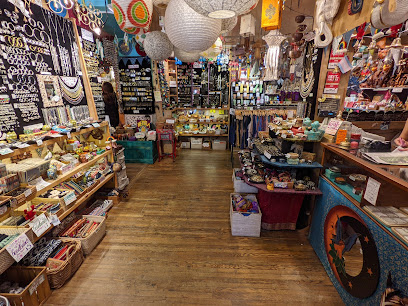
Old Navy
Explore Old Navy in Halifax for stylish affordable clothing for the whole family, including baby, children's, men's, and women's fashion.

Urban Outfitters
Discover unique fashion, accessories, and home goods at Urban Outfitters in Halifax—where style meets local flair.

Bookmark
Explore a diverse collection of books and enjoy a cozy atmosphere at Bookmark, Halifax's treasured local bookstore.
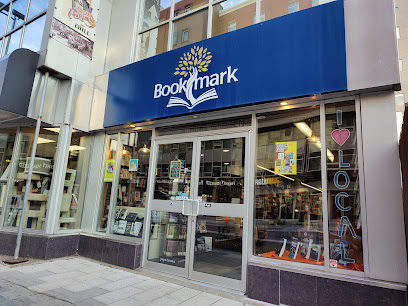
Neighbourhood Witch General Store
Explore the metaphysical world at Neighbourhood Witch General Store, Halifax's enchanting boutique for crystals, tarot, and unique magical supplies.
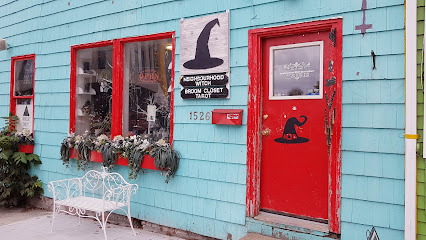
Sweet Jane's
Discover Sweet Jane's in Halifax - a delightful novelty and candy store brimming with unique gifts, chocolates, and sweet treats for all ages.
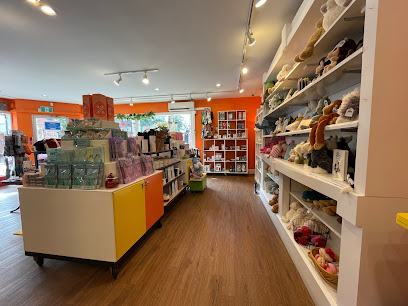
Coles - Halifax Shopping Centre
Explore Coles in Halifax Shopping Centre for unique gifts and a vast selection of books, capturing the spirit of Nova Scotia.

Jennifer's Of Nova Scotia
Explore Jennifer's Of Nova Scotia, a treasure trove of local crafts and unique gifts in Downtown Halifax, perfect for memorable souvenirs.
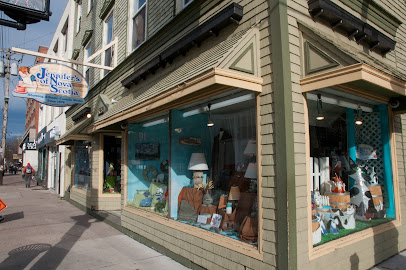
Sarah & Tom - Halifax
Explore Sarah & Tom, Halifax’s charming gift shop for unique local treasures and handcrafted items, showcasing the spirit of Nova Scotia.

The Loot Vintage
Explore The Loot Vintage in Downtown Halifax for unique, eco-friendly fashion treasures and a memorable shopping experience.
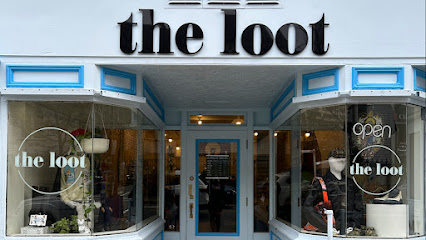
the ikebana shop
Explore the charm of Japanese Ikebana at The Ikebana Shop in Halifax, where unique gifts meet cultural artistry.
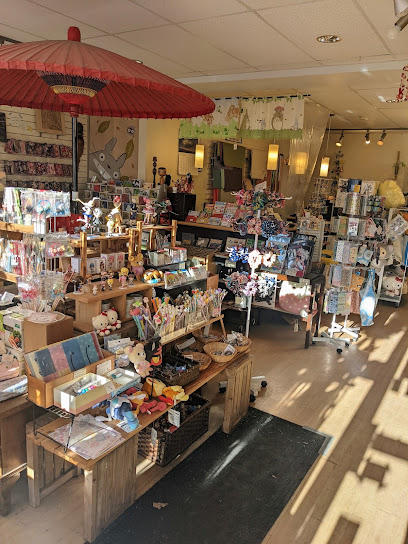
Aritzia
Discover Aritzia in Halifax: Your go-to destination for stylish women's clothing and trendy fashion accessories.
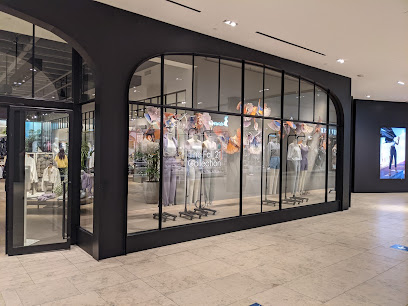
Biscuit General Store
Explore Biscuit General Store, Halifax's premier destination for unique gifts, stylish clothing, and handcrafted jewelry, celebrating local artistry.
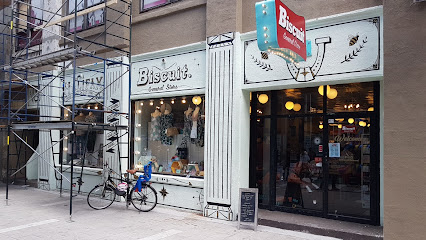
Essential bars & hidden hideouts
Durty Nelly's Irish Pub
Discover the vibrant atmosphere and authentic Irish cuisine at Durty Nelly's Irish Pub, a must-visit destination in Downtown Halifax.
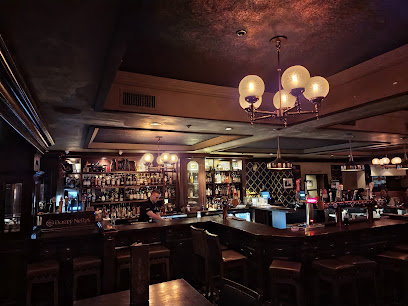
The Old Triangle Irish Alehouse
Discover the heart of Ireland in Halifax at The Old Triangle, your go-to spot for Irish food, drinks, and live music in a welcoming atmosphere.
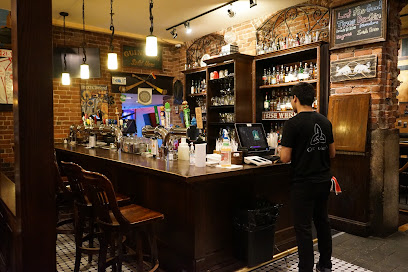
The Lower Deck
Discover The Lower Deck, a vibrant pub in Halifax, offering great food, drinks, and live entertainment with stunning waterfront views.
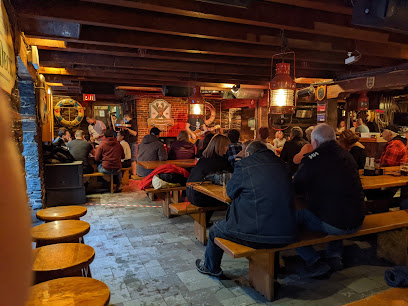
The Stubborn Goat Gastropub
Discover innovative comfort food and local brews at The Stubborn Goat Gastropub in Downtown Halifax, where culinary creativity meets vibrant ambiance.
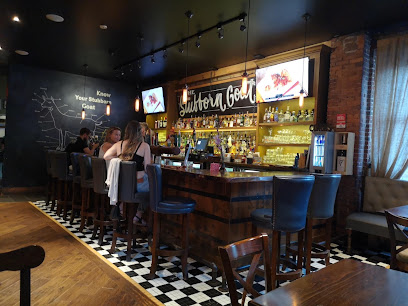
Henry House
Discover the rich flavors of Nova Scotia at Henry House, Halifax's favorite pub and restaurant featuring local brews and hearty comfort food.
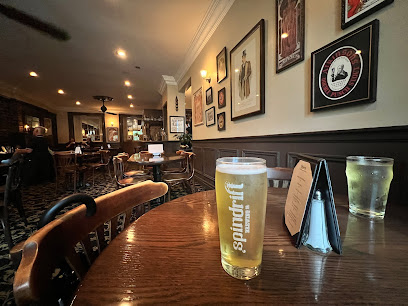
Lot Six Bar & Restaurant
Experience the vibrant flavors of Halifax at Lot Six Bar & Restaurant, where culinary excellence meets local charm.
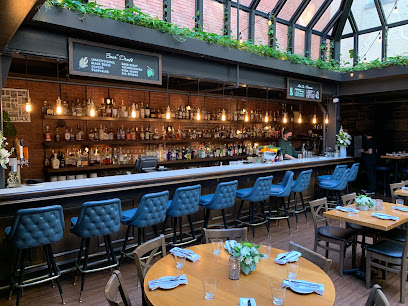
Good Robot Brewing - Robie St. Taproom, Store & Beer Garden
Discover the vibrant craft beer culture of Halifax at Good Robot Brewing, where unique flavors and a welcoming atmosphere come together.

The Lower Deck Bar & Grill
Discover The Lower Deck Bar & Grill: A lively spot for grilled delights and live music in Halifax's Clayton Park.
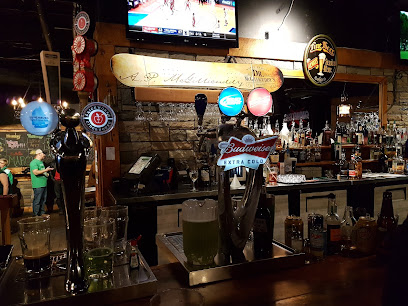
The Press Gang Restaurant and Oyster Bar
Experience the finest seafood dishes in Halifax at The Press Gang Restaurant and Oyster Bar, nestled in the heart of Downtown with a rich culinary heritage.
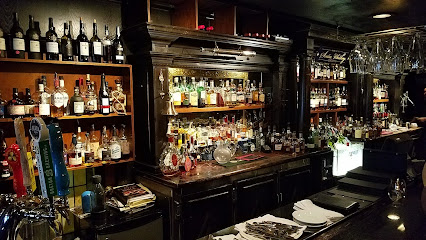
The Pint Public House - Halifax
Experience Halifax's vibrant social scene at The Pint Public House, where delicious food and local craft beers meet a lively atmosphere.
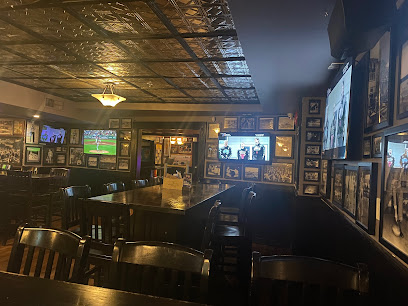
The Auction House
Discover the lively atmosphere and local flavors at The Auction House, Halifax's top bar and restaurant destination.
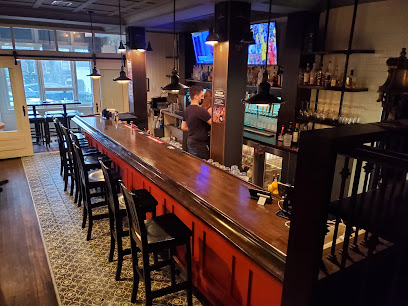
The Split Crow Pub
Discover the lively ambiance and local flavors at The Split Crow Pub in the heart of Halifax, a must-visit for food and drink enthusiasts.
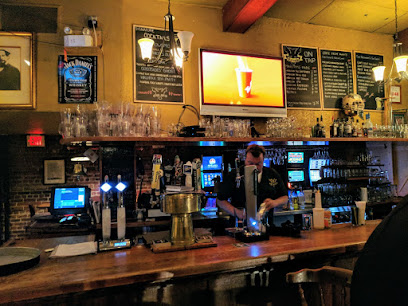
The Brown Hound Public House
Discover The Brown Hound Public House in Halifax, where local flavors and a warm atmosphere create the perfect pub experience.
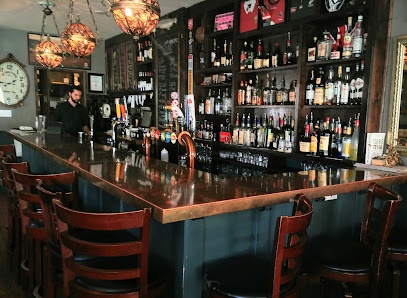
Oasis Pub
Discover the lively Oasis Pub in Downtown Halifax, where great food, drinks, and vibrant atmosphere combine for an unforgettable experience.
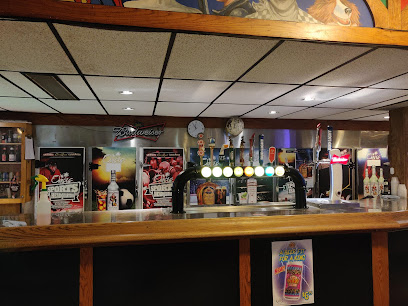
ORSO Pub & Grill
Discover ORSO Pub & Grill in Downtown Halifax, where local flavors meet a vibrant atmosphere for an unforgettable dining experience.
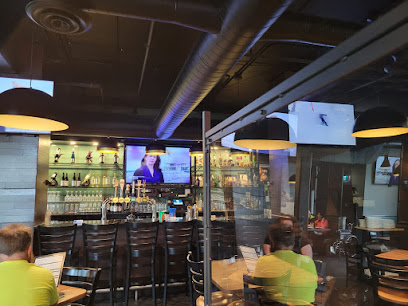
Local Phrases
-
- HelloHi
[haɪ] - GoodbyeBye
[baɪ] - YesYeah
[jɛ] - NoNah
[nɑ] - Please/You're welcomePlease/You're welcome
[pliːz/jʊr ˈwɛlkəm] - Thank youThanks
[θæŋks] - Excuse me/SorrySorry
[ˈsɔri] - How are you?How are ya?
[haʊ ɑr jə] - Fine. And you?Good. And you?
[ɡʊd. ænd jə] - Do you speak English?Do you speak English?
[du jʊ spiːk ˈɪŋɡlɪʃ] - I don't understandI don't get it
[aɪ doʊnt ɡɛt ɪt]
- HelloHi
-
- I'd like to see the menu, pleaseI'd like to see the menu, please
[aɪd laɪk tu siː ðə ˈmɛnjuː pliːz] - I don't eat meatI don't eat meat
[aɪ doʊnt it miːt] - Cheers!Cheers!
[tʃɪrz] - I would like to pay, pleaseI would like to pay, please
[aɪ wʊd laɪk tu peɪ pliːz]
- I'd like to see the menu, pleaseI'd like to see the menu, please
-
- Help!Help!
[hɛlp] - Go away!Go away!
[ɡoʊ əˈweɪ] - Call the Police!Call the Police!
[kɔl ðə pəˈlis] - Call a doctor!Call a doctor!
[kɔl ə ˈdɑktər] - I'm lostI'm lost
[aɪm lɔst] - I'm illI'm sick
[aɪm sɪk]
- Help!Help!
-
- I'd like to buy...I'd like to buy...
[aɪd laɪk tu baɪ] - I'm just lookingI'm just looking
[aɪm ˈdʒʌst ˈlʊkɪŋ] - How much is it?How much is it?
[haʊ mʌtʃ ɪz ɪt] - That's too expensiveThat's too expensive
[ðæts tuː ɪkˈspɛnsɪv] - Can you lower the price?Can you lower the price?
[kæn jʊ ˈloʊər ðə praɪs]
- I'd like to buy...I'd like to buy...
-
- What time is it?What time is it?
[wɑt taɪm ɪz ɪt] - It's one o'clockIt's one o'clock
[ɪts wʌn əˈklɑk] - Half past (10)Half past ten
[hæf pæst tɛn] - MorningMorning
[ˈmɔrnɪŋ] - AfternoonAfternoon
[ˌæftərˈnun] - EveningEvening
[ˈivnɪŋ] - YesterdayYesterday
[ˈjɛstɝdeɪ] - TodayToday
[təˈdeɪ] - TomorrowTomorrow
[təˈmɔroʊ] - 1One
[wʌn] - 2Two
[tu] - 3Three
[θriː] - 4Four
[fɔr] - 5Five
[faɪv] - 6Six
[sɪks] - 7Seven
[ˈsɛvən] - 8Eight
[eɪt] - 9Nine
[naɪn] - 10Ten
[tɛn]
- What time is it?What time is it?
-
- Where's a/the...?Where's the...?
[wɛrz ðə] - What's the address?What's the address?
[wɑts ðə ˈædrɛs] - Can you show me (on the map)?Can you show me (on the map)?
[kæn jʊ ʃoʊ miː (ɒn ðə mæp)] - When's the next (bus)?When's the next (bus)?
[wɛnz ðə nɛkst (bʌs)] - A ticket (to ....)A ticket (to ....)
[ə ˈtɪkɪt (tu)]
- Where's a/the...?Where's the...?
History of Halifax
-
Halifax was founded on June 21, 1749, by Edward Cornwallis. The British established the settlement to counterbalance the French presence in North America and to serve as a naval base. The city was named in honor of George Montagu-Dunk, 2nd Earl of Halifax. The establishment of Halifax marked the beginning of a significant British military and naval presence in the region.
-
On December 6, 1917, a catastrophic explosion occurred in the Halifax Harbour when the SS Mont-Blanc, a French cargo ship laden with explosives, collided with the Norwegian vessel SS Imo. The explosion killed approximately 2,000 people, injured 9,000, and devastated the Richmond district of Halifax. It remains one of the largest non-nuclear explosions in history and had a profound impact on the city and its development.
-
During both World War I and World War II, Halifax played a crucial role as a major naval base and departure point for trans-Atlantic convoys. The city's strategic location made it a vital hub for the movement of troops, supplies, and equipment. Halifax's shipyards were also essential in constructing and repairing vessels for the war effort.
-
The Halifax Citadel, an iconic star-shaped fortress, has stood guard over the city since 1749. The current structure, completed in 1856, is the fourth fortification on the site. The Citadel served as a key defensive position for the British and later Canadian military, protecting the city and its valuable harbor. Today, it is a National Historic Site and popular tourist attraction, offering insights into Halifax's military history.
-
From 1928 to 1971, Pier 21 in Halifax was the primary point of entry for over one million immigrants to Canada. Known as Canada's 'Gateway to the New World,' Pier 21 welcomed people from diverse backgrounds seeking new opportunities and a fresh start. The site now houses the Canadian Museum of Immigration at Pier 21, which commemorates the immigrants' experiences and contributions to Canadian society.
-
After the sinking of the RMS Titanic in 1912, Halifax played a pivotal role in the recovery operations. Cable ships from the city were dispatched to retrieve bodies from the wreck site. Many of the recovered bodies were brought back to Halifax, and 150 victims are buried in three of the city's cemeteries. This connection to the Titanic disaster remains an important part of Halifax's maritime heritage.
-
Halifax has evolved into a vibrant, multicultural city with a rich tapestry of cultural influences. Its historic sites, universities, and arts scene contribute to a dynamic urban environment. The city's waterfront, bustling with shops, restaurants, and festivals, reflects its deep connection to the sea. Today, Halifax continues to grow and thrive, blending its storied past with modern innovation and cultural diversity.
Halifax Essentials
-
Halifax is served by the Halifax Stanfield International Airport (YHZ), located approximately 35 kilometers north of downtown Halifax. The airport offers numerous domestic and international flights, making it a convenient entry point. From the airport, you can reach the city center by taking a taxi, shuttle service, or rental car. The airport shuttle, called the Airport Express, operates multiple times a day and provides a cost-effective option for travelers.
-
Halifax has a well-connected public transportation system operated by Halifax Transit, which includes buses and ferries. The bus network covers most areas of the city, and the ferry service connects downtown Halifax with Dartmouth across the harbor. For more flexibility, you can use ride-sharing services like Uber and Lyft, or rent a car. Taxis are also available throughout the city. Walking and biking are popular options, especially in the downtown area, which is compact and pedestrian-friendly.
-
The official currency in Halifax, as in the rest of Canada, is the Canadian Dollar (CAD). Credit and debit cards are widely accepted in hotels, restaurants, and shops. ATMs are plentiful and can be found throughout the city for cash withdrawals. It's advisable to carry some cash for small purchases or in case you visit establishments that do not accept cards. Currency exchange services are available at the airport, banks, and some hotels.
-
Halifax is generally a safe city for tourists, but it’s wise to take standard precautions. Avoid walking alone at night in unfamiliar areas, particularly in the North End and parts of Dartmouth, which have higher crime rates. Keep an eye on your belongings in crowded places, and use well-lit, busy streets when traveling after dark. Always be aware of your surroundings and trust your instincts.
-
In case of emergency, dial 911 for police, fire, or medical assistance. Halifax has several hospitals, including the QEII Health Sciences Centre, which provides comprehensive medical services. Pharmacies are widely available for minor health issues. It's advisable to have travel insurance that covers medical emergencies. For non-emergency issues, the non-emergency police line can be reached at 902-490-5020.
-
Fashion: Do dress in layers, as Halifax weather can be unpredictable. Don't wear offensive or inappropriate clothing. Religion: Do respect local customs and be mindful when visiting religious sites. Public Transport: Do have your fare ready and be courteous to drivers and fellow passengers. Don't play loud music or eat on public transport. Greetings: Do greet people with a friendly 'Hello' or 'Hi.' A handshake is common in formal settings. Eating & Drinking: Do try local delicacies like lobster and donairs. Don't leave a small tip; 15-20% is customary in restaurants.
-
To experience Halifax like a local, visit the Halifax Seaport Farmers' Market on weekends for fresh produce and artisanal goods. Explore the various neighborhoods, such as the historic Hydrostone District and the vibrant North End. Take a stroll along the Halifax Waterfront Boardwalk and enjoy the harbor views. Engage with locals, who are known for their friendliness and hospitality, and don't miss out on local events and festivals, which provide a glimpse into the city's culture and community spirit.
Trending Landmark in Halifax
-
Halifax Waterfront
-
Halifax Public Gardens
-
Halifax Citadel National Historic Site
-
Point Pleasant Park
-
Canadian Museum of Immigration at Pier 21
-
Museum of Natural History
-
Harbour Hopper Tours
-
York Redoubt National Historic Site
-
Historic Properties
-
Grand Parade
-
Fort Needham Memorial Park
-
Peace and Friendship Park
-
Halifax Explosion Memorial Bell Tower
-
Georges Island National Historic Site
-
Old Town Clock
Nearby Cities to Halifax
-
Things To Do in Quebec City
-
Things To Do in Montreal
-
Things To Do in Stowe
-
Things To Do in Burlington
-
Things To Do in Montpelier
-
Things To Do in Waterville
-
Things To Do in Augusta
-
Things To Do in Lewiston
-
Things To Do in Middlebury
-
Things To Do in Bangor
-
Things To Do in Lake Placid
-
Things To Do in Hanover
-
Things To Do in Brunswick
-
Things To Do in Killington
-
Things To Do in Woodstock



















